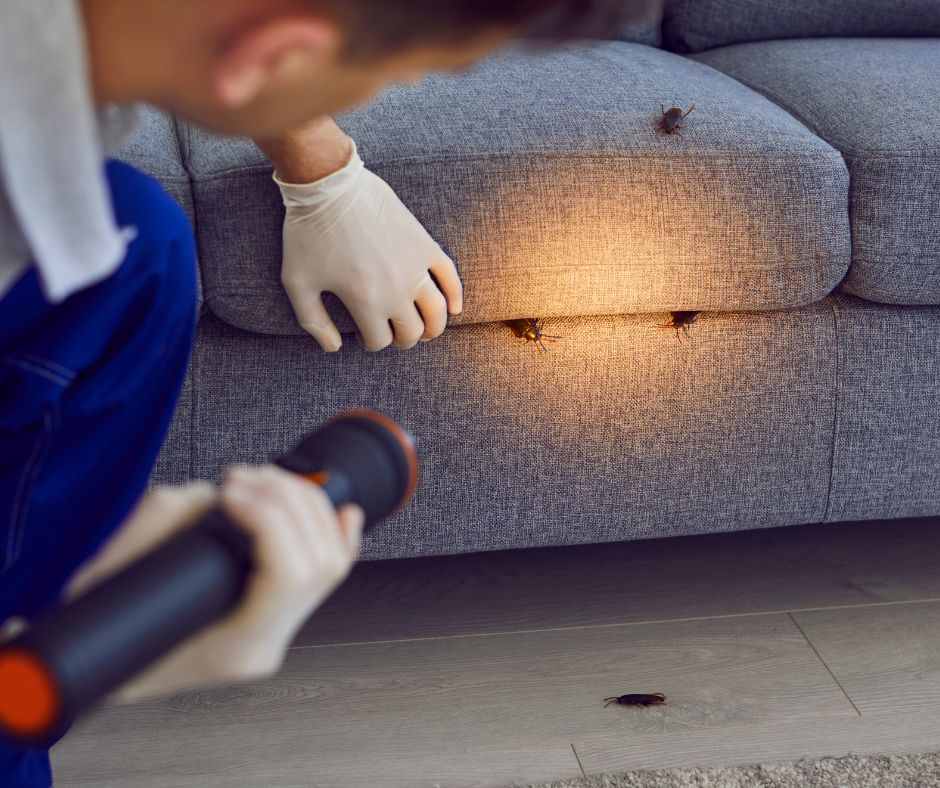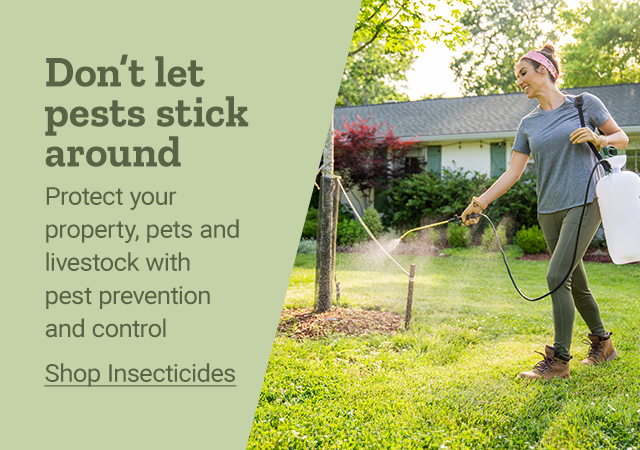Pest Control Services: Keeping Your Household Safe from Invasive Insects
Learn Concerning the most up to date Breakthroughs in Pest Control and How to Apply Efficient Treatment Solutions
In recent years, the field of bug control has actually experienced considerable developments, driven by the requirement for sustainable and reliable therapy services. Cutting-edge techniques such as Integrated Insect Monitoring (IPM) combine eco-friendly techniques with sophisticated technology, improving both effectiveness and ecological duty.
Eco-Friendly Bug Control Options
In recent years, the demand for environmentally friendly bug control choices has surged as organizations and house owners alike seek sustainable options to conventional chemical therapies. This shift is driven by expanding environmental recognition and a wish to minimize the health risks associated with artificial pesticides.

Green pest control methods encompass a variety of approaches that focus on making use of all-natural materials and methods. Integrated Bug Monitoring (IPM) is one such approach, incorporating organic, cultural, and mechanical techniques to handle insect populaces while minimizing reliance on chemicals (Wildlife removal services). This alternative technique highlights avoidance with environment adjustment and the intro of all-natural predators, consequently promoting a well balanced community
An additional preferred option is using botanical chemicals stemmed from plants, which tend to be much less hazardous to non-target organisms. Products like neem oil and diatomaceous planet have acquired grip for their efficiency in managing parasites while positioning marginal threats to human wellness and the setting.
Furthermore, exclusion techniques, such as sealing entrance factors and maintaining cleanliness, play an important function in green insect administration. By taking on these lasting practices, people and organizations can successfully handle parasites while promoting a much healthier earth for future generations.
Smart Modern Technology in Parasite Management
Advancement is reshaping the landscape of parasite monitoring, with smart modern technology arising as a crucial force in improving efficiency and efficiency - Wildlife removal services. The integration of Net of Points (IoT) gadgets, expert system (AI), and data analytics is transforming just how insect control specialists approach invasions
Smart traps outfitted with sensors can spot parasite activity in real-time, sending immediate informs to operators. This permits timely actions, minimizing damages and lowering the requirement for extensive therapies. Additionally, AI formulas evaluate historic information to predict insect habits, enabling proactive treatments based upon environmental conditions and problem patterns.
Drones and automated cars are likewise playing a considerable duty in parasite administration, giving aerial analyses of huge locations, identifying hotspots, and also distributing targeted therapies. These modern technologies not only streamline procedures yet likewise improve security by limiting human direct exposure to potentially unsafe chemicals.
Additionally, mobile applications encourage customers to keep track of insect task and gain access to professional suggestions, fostering a collective method to pest management. In general, the adoption of smart technology is setting a new standard in pest control, stressing data-driven decisions and sustainable techniques that inevitably benefit both specialists and house owners alike.
Integrated Bug Administration Approaches
Integrated Bug Monitoring (IPM) employs an all natural approach to pest control, combining numerous methods to properly handle pest populations while lessening dangers to human wellness and the setting. IPM revolves around comprehending the pest life cycle, their natural adversaries, and the ecosystem in which they flourish.
Among the fundamental parts of IPM is keeping an eye on pest populations through routine evaluations and information collection. This enables the identification of parasite thresholds, determining when intervention is necessary. Cultural techniques, such as plant turning, sanitation, and habitat manipulation, are vital in lowering parasite prevalence and advertising plant health.
Mechanical controls, including catches and obstacles, are likewise important in IPM. These approaches can physically eliminate or prevent pests without using chemicals. When necessary, the sensible application of chemical controls is utilized, concentrating on targeted treatments that minimize environmental influence.
Education and learning and partnership among stakeholders, including farmers, parasite control professionals, and the neighborhood, are vital for the successful application of IPM approaches. By focusing on sustainable techniques, IPM not just addresses pest concerns yet likewise promotes a healthier community.
Biological Control Approaches
Numerous organic control approaches are increasingly recognized for their effectiveness in managing insect populaces while advertising environmental equilibrium. These strategies harness all-natural predators, parasites, and virus to reduce pest numbers without counting on synthetic chemicals. For example, the intro of ladybugs can efficiently control aphid populations, while nematodes target soil-dwelling pest larvae.
In addition, using microbial chemicals, such as Bacillus thuringiensis (Bt), supplies an eco-friendly choice for taking care of caterpillar pests. These items particularly target pest types, lessening injury to beneficial pests and pollinators. Furthermore, preservation organic control stresses enhancing environments for all-natural adversaries, such as birds and helpful insects, consequently motivating their presence in farming systems.
Research remains professional pest control to reveal cutting-edge strategies within this area, such as making use of pheromones to interfere with pest breeding patterns or the advancement of biocontrol representatives with genetic modification. Applying these approaches can lead to lasting insect administration techniques that mitigate the dependence on chemical treatments, ultimately fostering healthier ecological communities. As understanding of these techniques expands, they are coming to be integral parts of integrated bug monitoring pest and control (IPM) methods, offering a balance in between efficient parasite control and environmental stewardship.
DIY Pest Control Solutions
As homeowners look for reliable ways to deal with pest problems, do it yourself insect control services have actually gained appeal for their access and cost-effectiveness. These techniques empower individuals to address problems making use of conveniently available products and strategies, usually without the requirement for specialist intervention.
:max_bytes(150000):strip_icc()/GettyImages-1406458401-c326873c5dcf400dab30717b9b4e596a.jpg)
Furthermore, maintaining proper cleanliness and routine evaluations can stop pest entrance and nesting (Wildlife removal services). Straightforward practices, such as sealing fractures, getting rid of food sources, and decluttering, can significantly decrease parasite populations. Catches, both homemade and commercially offered, can also provide effective solutions for surveillance and regulating certain insects like rodents or bugs

Verdict
The integration of green insect control alternatives, wise innovation, and innovative monitoring techniques offers an investigate this site extensive strategy to effective bug administration. By welcoming Integrated Pest Administration (IPM) and utilizing biological control approaches, alongside Do it yourself solutions, responsible and lasting parasite control can be achieved.
Environment-friendly bug control methods include an array of strategies that prioritize the usage of all-natural materials and practices. Integrated Bug Monitoring (IPM) is one such approach, integrating organic, social, and mechanical tactics to manage insect populaces while lowering reliance on chemicals. As awareness of these methods expands, they are coming to be integral elements of integrated bug monitoring (IPM) approaches, offering a balance between effective bug control and ecological stewardship.
The combination of green parasite control alternatives, smart technology, and innovative management techniques presents an extensive method to effective insect management. By embracing Integrated Insect Management (IPM) and making use of organic control techniques, together with DIY services, liable and lasting bug control can be accomplished.